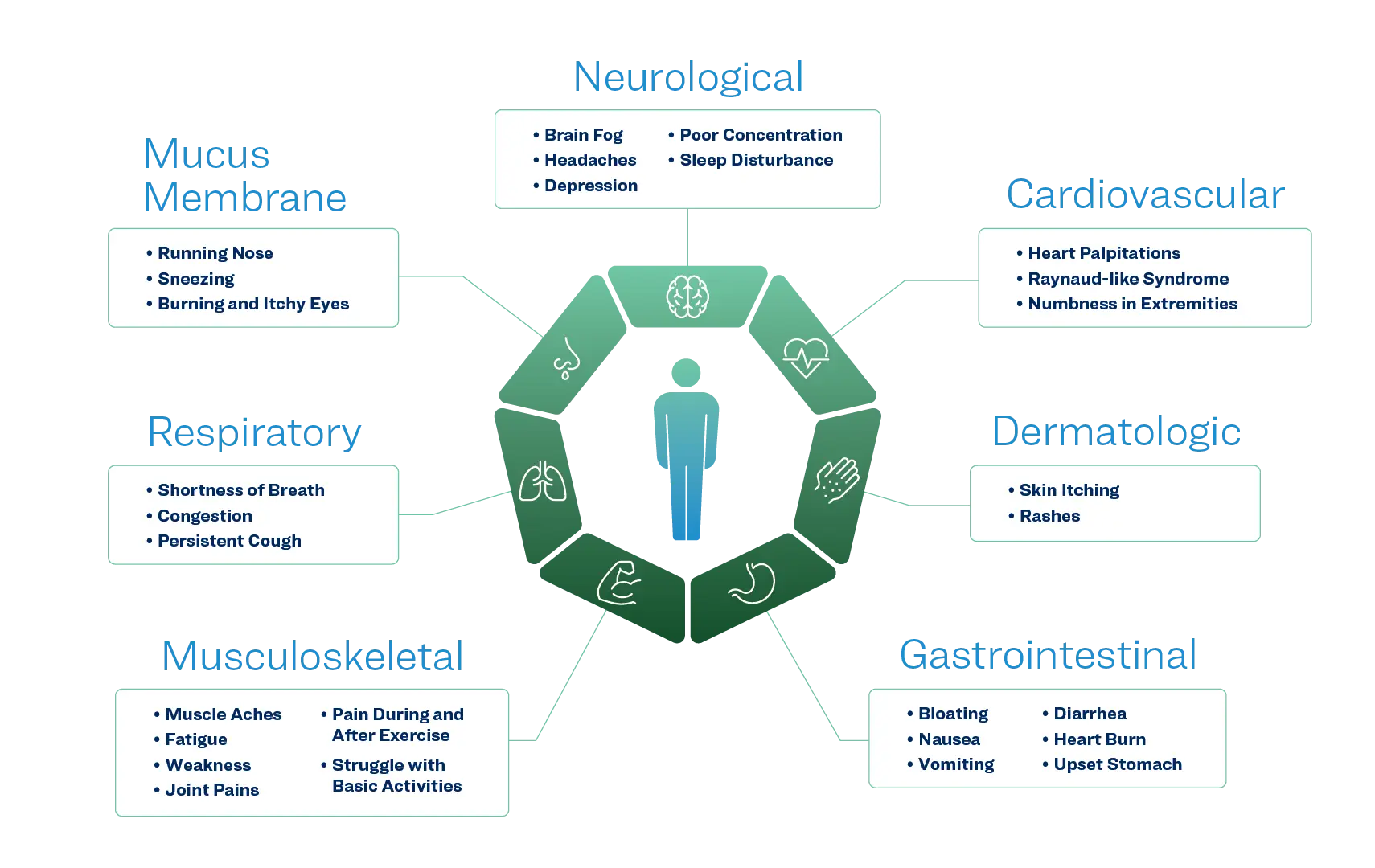Long Haul Syndrome Symptoms
The CDC reports 40% of U.S. adults have had COVID-19, and nearly 1 in 5 are still experiencing symptoms regardless of whether the infection was severe enough to require hospitalization. Long Haul Syndrome, often called Long COVID, can show a variety of symptoms.
Do you suffer from one or more of these symptoms?
- Anxiety
- Brain Fog
- Depression
- Dizziness
- Diarrhea, nausea, and/or abdominal pain
- Diminished appetite
- Earache, hearing loss, and/or ringing in ears (tinnitus)
- Hair loss
- Insomnia
- Memory Impairments
- Muscle Aches
- Rapid or irregular heartbeat (palpitations)
- Rashes
- Shortness of Breath
- Unexplained fatigue
- Numbness in extremities
If you have any of these and other symptoms you could be one of the millions of people suffering from Long Haul Syndrome.


We get to the root cause.
Long Haul Syndrome is defined by the World Health Organization as a chronic illness with symptoms lasting 12 weeks or longer after the initial COVID-19 infection. Even if you thought you were fully recovered, Long Haul is a reoccurrence and persistence of fatigue, shortness of breath, chest pain, persistent fever, brain fog, and more even after the initial infection has cleared.
We provide the most up-to-date evidence-based treatments for Long Haul Covid personalized to your unique needs that may include:
- Lab Testing
- Professional Grade Supplements
- Low Dose Naltrexone
- Ivermectin
- Iodine Nasal Spray
- IV Therapy
- Other advanced in-office treatments
- Decrease inflammation
- Autoimmune triggers
- Virus reactivation
- Mitochondrial damage
- Inducing autophagy
- Brain function & optimization
- And more
Our experienced and highly-trained functional health physicians will look at you as an individual to create a treatment plan that is right for you!
To learn more about Long Haul Covid, or Long Haul Syndrome therapy:
Visit our Advanced Therapies Long Haul COVID Treatment page
Find a Long-Haul COVID Clinic Near You!
Reclaim control of your health with long covid treatment.
Symptoms tend to worsen over time. It’s important to get treatment right away.



